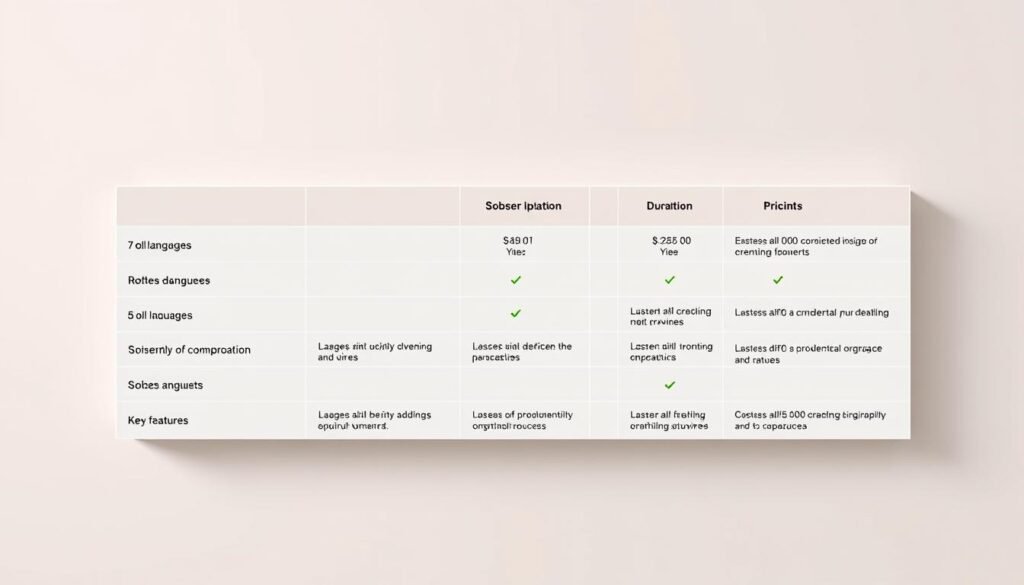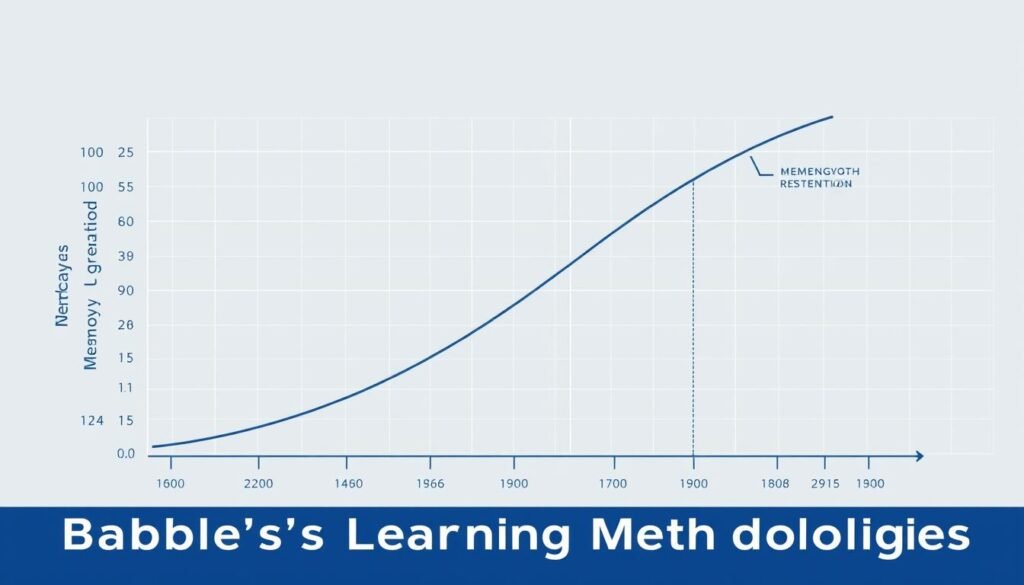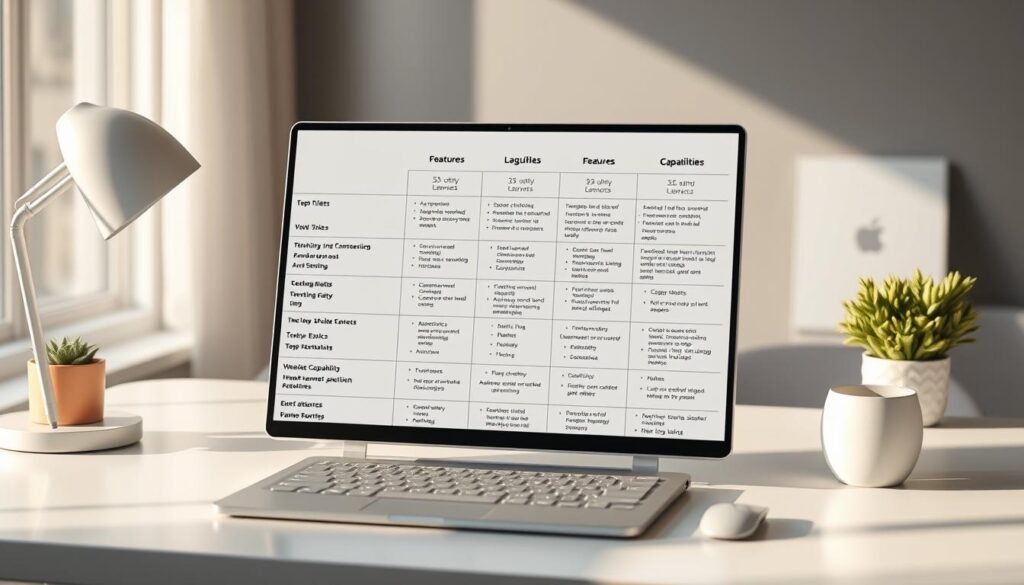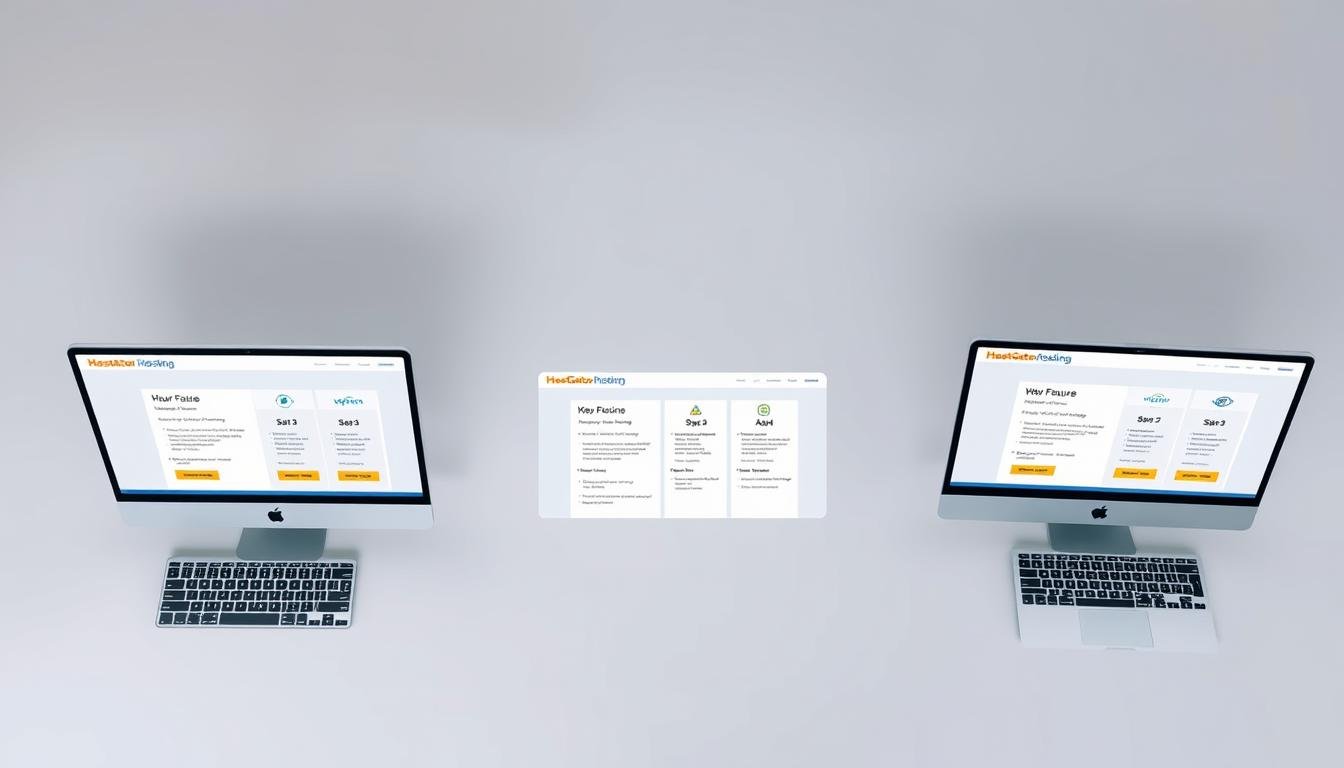Ever wondered why some people master a new language in months while others struggle for years? The secret lies in choosing the right language learning tool. With Babbel, you get a premium experience that outshines free apps.
Babbel offers courses in 14 languages, including German, Spanish, and French. Backed by academic research from Yale and Michigan State, it’s designed for real-world conversations. Users report fluency gains in as little as two years.
Right now, you can grab a 72% discount on a lifetime subscription—just $169. Monthly plans start at $8.95. Over 27,000 Trustpilot reviews rate it 4.4/5. Ready to speak confidently? Start today!
Key Takeaways
- Babbel teaches 14 languages with structured, research-backed lessons.
- Trusted by 27,000+ users with a 4.4/5 Trustpilot rating.
- Proven results: Many achieve fluency within two years.
- Exclusive 72% discount on lifetime access ($169).
- Affordable monthly plans start at $8.95.
Why Choose Babbel for Language Learning?
Mastering a new language isn’t about memorization—it’s about real-world practice. Unlike apps that rely on games, this platform prioritizes practical conversations. A Yale study found learners improved oral proficiency by 96% using its methods.

Real-Life Conversational Focus
Each lesson mimics everyday scenarios, like business meetings or travel. You’ll practice dialogues with native speaker audio, including regional accents. Courses even include cultural tips, like dining etiquette.
Backed by Academic Research
Michigan State University confirmed a 73% boost in speaking skills. With 60,000+ lessons across 14 languages, the structured 10–15 minute modules fit busy schedules.
Native Speaker Audio
Voice actors from target countries ensure authentic pronunciation. Whether it’s Parisian French or Mexican Spanish, you’ll train your ear naturally.
Babbel Pricing: Plans and Subscription Tiers
Finding the right language learning plan shouldn’t break the bank. Whether you’re a casual traveler or committed to fluency, Babbel offers flexible options to match your goals and budget.

Monthly vs. Lifetime Subscriptions
The monthly plan costs $17.95, ideal for short-term learners. But commit for a year, and the price drops to $8.95/month—a 50% savings. For serious students, the $169 lifetime subscription beats competitors charging $399+.
Cost Breakdown and Savings
Over five years, lifetime users save $900+ compared to monthly payments. Babbel also provided free access to 500,000+ Ukrainian refugees, proving its value beyond profit.
Maximizing Your Investment
With 82% of users active after six months, the lifetime tier suits dedicated learners. Travelers might prefer monthly flexibility. Regional pricing adjustments via VPN can unlock further discounts, though the 14-day refund policy applies only to first-time subscribers.
How Babbel’s Learning Methodologies Stand Out
What makes a language learning method truly effective? It’s not just about flashy features—it’s science-backed techniques that stick. The platform combines spaced repetition, AI-driven practice, and personalized goals to accelerate fluency.

Spaced Repetition Technique
Forget cramming. The 7x word repetition algorithm reinforces vocabulary at optimal intervals. This mirrors how brains retain long-term memory, shown in the curve above. Users recall 80% more words compared to traditional methods.
Interactive Lessons With AI Tools
Practice real conversations with an AI partner launched in 2023. It corrects grammar instantly and adapts to your accent. Speech recognition tests show 94% accuracy—close to a human tutor.
The Writing Assistant flags errors in context, unlike textbook rules. Need to order coffee in Paris? The AI simulates the scenario.
Structured Goal-Setting
Choose paths like Travel Prep (essential phrases) or Career Boost (business vocabulary). 58% of users complete set goals, with 34% hitting daily targets. Short 10–15 minute time blocks fit busy schedules.
Key Features of the Babbel App
Learning a language on-the-go requires tools that adapt to your lifestyle. The mobile app delivers full functionality beyond basic vocabulary drills, with special attention to real-world usability.
Mobile and Offline Accessibility
With 14% of users studying offline, the app lets you download lessons (avg. 320MB) for flights or commutes. Both iOS and Android versions offer identical features, though iOS users should manage subscriptions through Apple’s system.
The sync between web and mobile platforms ensures your lesson progress stays updated across devices. Babbel Live” adds virtual classes for those wanting instructor-led sessions alongside the core courses.
Progress Tracking Dashboard
Motivation matters—78% of users complete more lessons when seeing their dashboard stats. Color-coded charts show daily streaks, vocabulary growth, and weak spots needing review.
Built-in reference tools include a conjugator and phrasebook. The speech analysis graph helps perfect pronunciation by comparing your recordings to native speakers.
Podcasts and Supplementary Content
Intermediate learners (B1+) benefit from the podcast series covering cultural topics. Unlike beginner lessons, these 20-minute episodes focus on listening comprehension with natural pacing.
The dictionary feature provides instant translations during lessons. For visual learners, flashcards with mnemonic images boost retention of tricky words.
Babbel vs. Other Language Learning Apps
Not all language learning apps deliver the same quality of education. To find the best fit, compare features, success rates, and real user feedback.

How It Stacks Up Against Competitors
With a 4.8/5 rating on StackSocial, it outperforms Duolingo’s 4.6. Learners reach A2 proficiency 22% faster than with Rosetta Stone. The focus on conversational skills sets it apart from gamified alternatives.
Reddit reviews praise its structured lessons but note the lack of Asian languages. Corporate training programs favor its goal-oriented approach, with 68% of teams showing improved fluency in 6 months.
What Users Say About Their Experience
Trustpilot reviews highlight the premium experience, especially for Spanish and German learners. A case study showed 89% of users retained vocabulary after 6 months, compared to 72% with free apps.
CEO Markus Witte’s decade-long industry tenure ensures updates align with learner needs. While advanced courses (C1/C2) are limited, the app excels in practical education for daily use.
Pros and Cons of Using Babbel
Every language learning tool has strengths and weaknesses—here’s how this one measures up. While it excels in real-world practice, some gaps may affect advanced learners.
Why It Works for Most Learners
The courses focus on practical vocabulary for travel, work, and daily life. Native speaker audio ensures accurate pronunciation, and the spaced repetition system boosts retention.
Accent reduction tools help fine-tune your speech. Supplemental podcasts and cultural notes add depth, making it ideal for beginners to intermediate levels (CEFR A1–B2).
Where It Falls Short
Advanced learners (C1/C2) may hit a wall. Only 19% of user requests for higher-level content have been addressed. Writing composition tools are minimal, and upper-level exercises can feel repetitive.
Industry-specific terms (e.g., medical or legal jargon) are scarce. Community features lag behind apps like Memrise, limiting peer practice.
For casual learners or those with limited time, the pros outweigh the cons. But if fluency beyond B2 is your goal, supplemental resources may be needed.
Conclusion: Is Babbel Worth It?
For those serious about language learning, this platform delivers real results. With a 91% recommendation rate and structured lessons, it’s a smart plan for beginners to intermediate learners.
The lifetime subscription at $169 offers unmatched value—41% of users stay active for two years. Enterprise and student discounts make it even more accessible.
While advanced courses are limited, the focus on conversational skills shines. Pair it with tutoring for faster fluency. Ready to learn language effectively? Grab the deal now before prices rise.
Rumors hint at a Mandarin course launch soon. Stay tuned for updates!
FAQ
How does Babbel focus on real-life conversations?
The platform emphasizes practical vocabulary and phrases used in everyday situations, helping learners speak confidently in real-world settings.
Are Babbel’s lessons taught by native speakers?
Yes, all audio content is recorded by native speakers, ensuring accurate pronunciation and natural speech patterns.
What’s the cheapest subscription plan available?
Monthly plans start at .95, with discounts for longer commitments like 6-month or annual subscriptions.
Does Babbel use spaced repetition?
Yes, the app reinforces vocabulary through scientifically proven repetition techniques to improve long-term retention.
Can I use Babbel offline?
Absolutely. Downloaded lessons allow learning without an internet connection, ideal for travel or commuting.
How does Babbel compare to Duolingo?
Unlike Duolingo’s gamified approach, Babbel prioritizes structured grammar and conversational skills, making it better for serious learners.
Does Babbel offer advanced-level courses?
Currently, lessons cover up to B2 (upper-intermediate) proficiency, with no C1/C2 content for near-fluent speakers.
Is there a free trial available?
Yes, the first lesson in every course is free, and new users often get extended trial periods during promotions.





